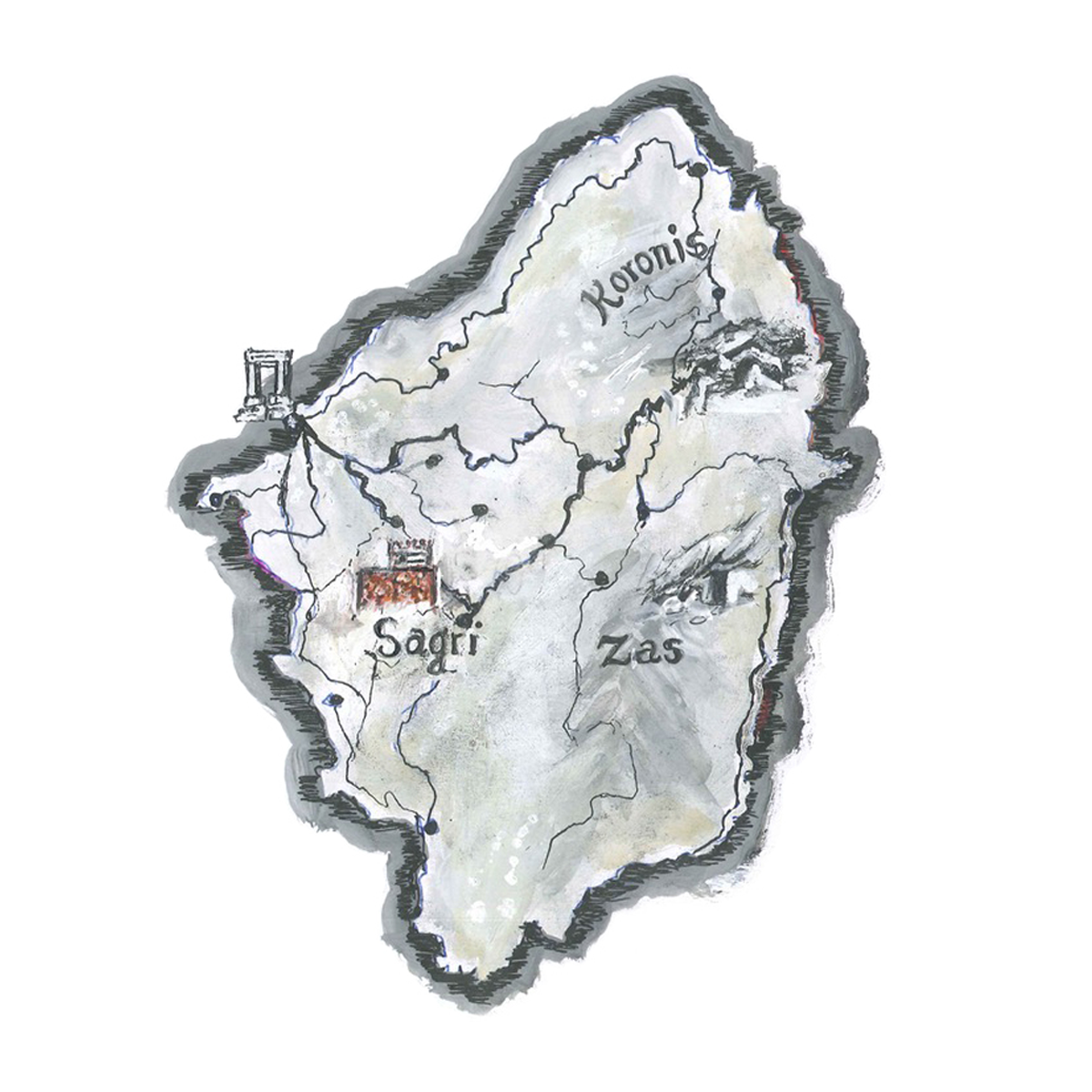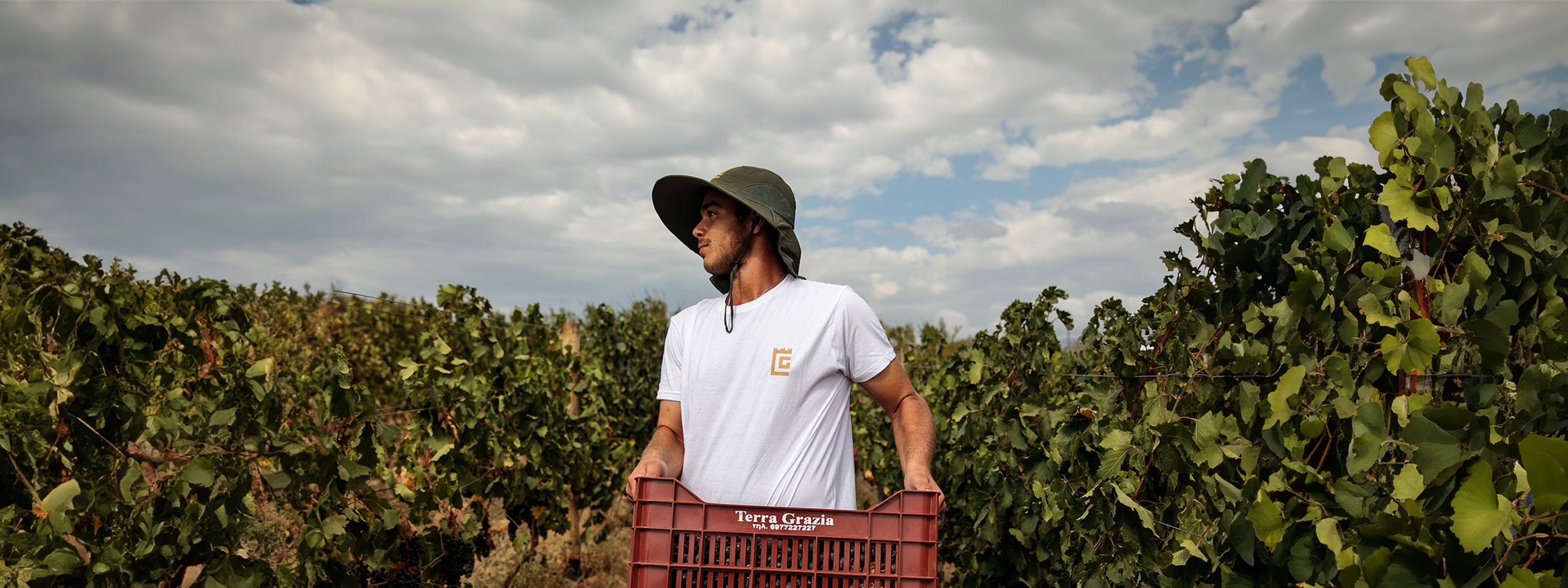The inhabitants of mountainous Naxos have historically been primarily vine growers.
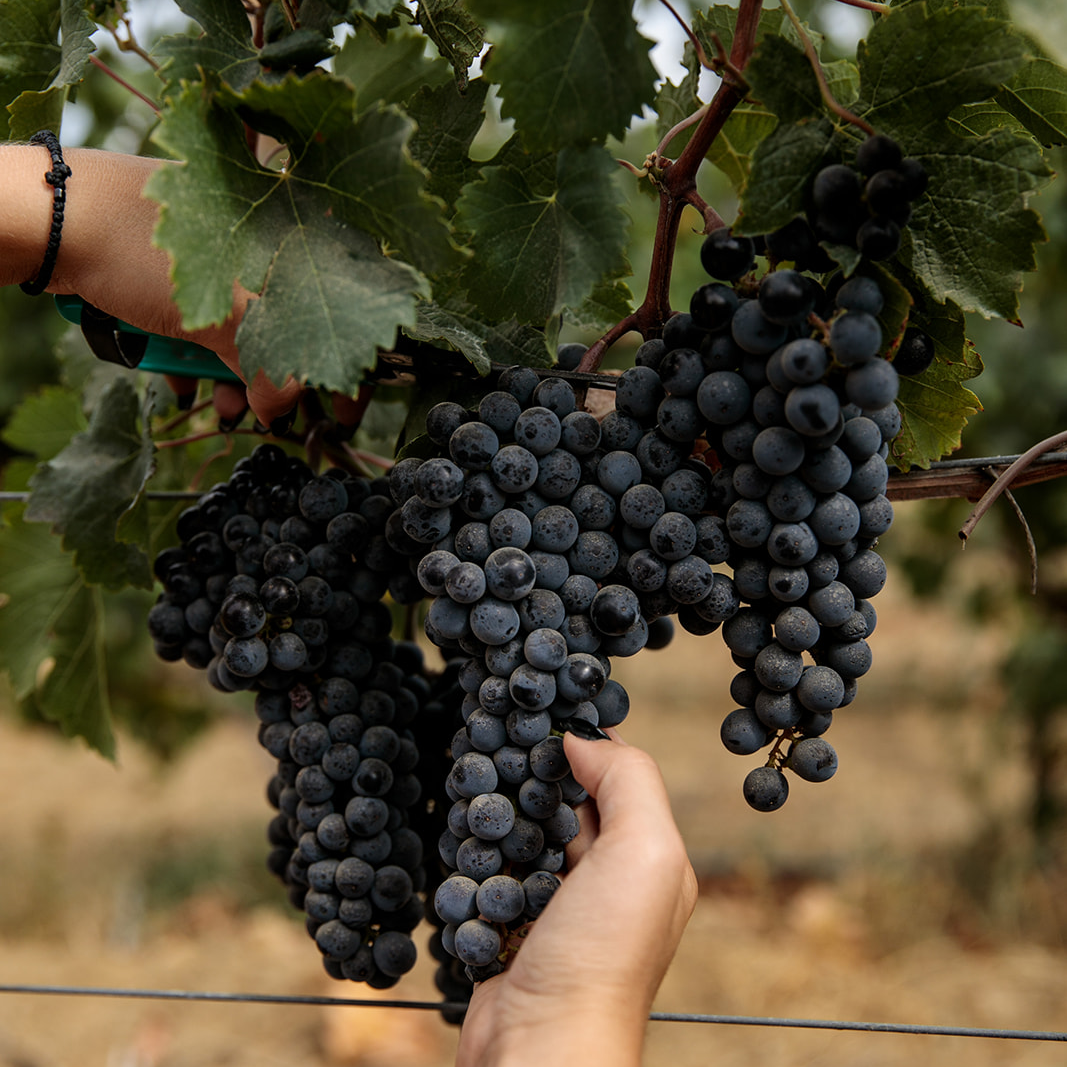
Naxos is the largest island in the Cyclades. It is located roughly in the centre of the Cyclades.
The topography of the island is formed by a low mountain range that crosses it from north to south, with the highest peak being “Za or Drio” (i.e., Zeus) at an altitude of 1.002 meters.
This name is derived from the mythological tradition that Zeus, according to one version, was born and raised in Naxos.
Naxos belongs geotectonically to the Attic-Cycladic zone.
It has significant mineral wealth, with two well-known products: marble and Naxos emery or “Naxian earth”.
Naxos is also rich in schistoliths, alternating layers of graphite in granite volumes.
The climate of the island is Mediterranean, mild and dry, with cool summers and mild winters.
The vineyard in Naxos is cultivated on its own roots, mainly in the mountainous region of the island, and the vines are trained in a low-trunk cup-shaped form, with a trunk height of 40-50 centimetres and three arms, planted in terraces.
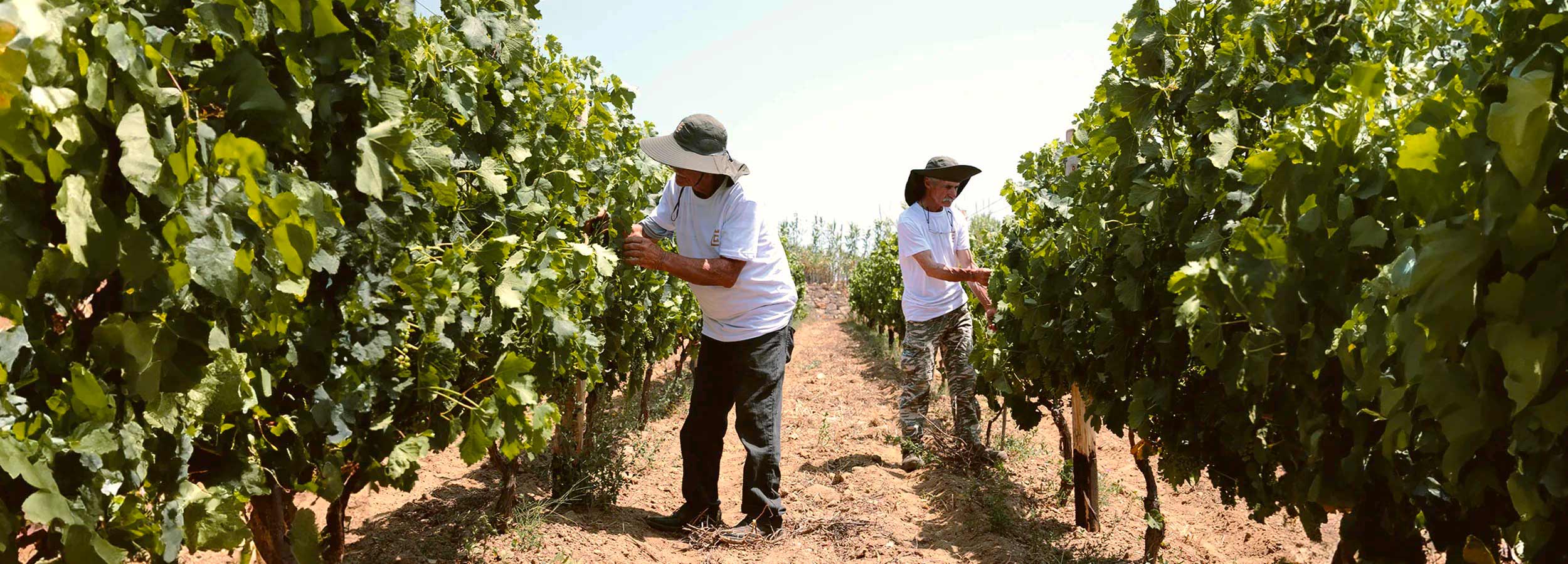
The vines are planted in traditional terraces, forming a low-trunk linear shape with dense planting along the line.
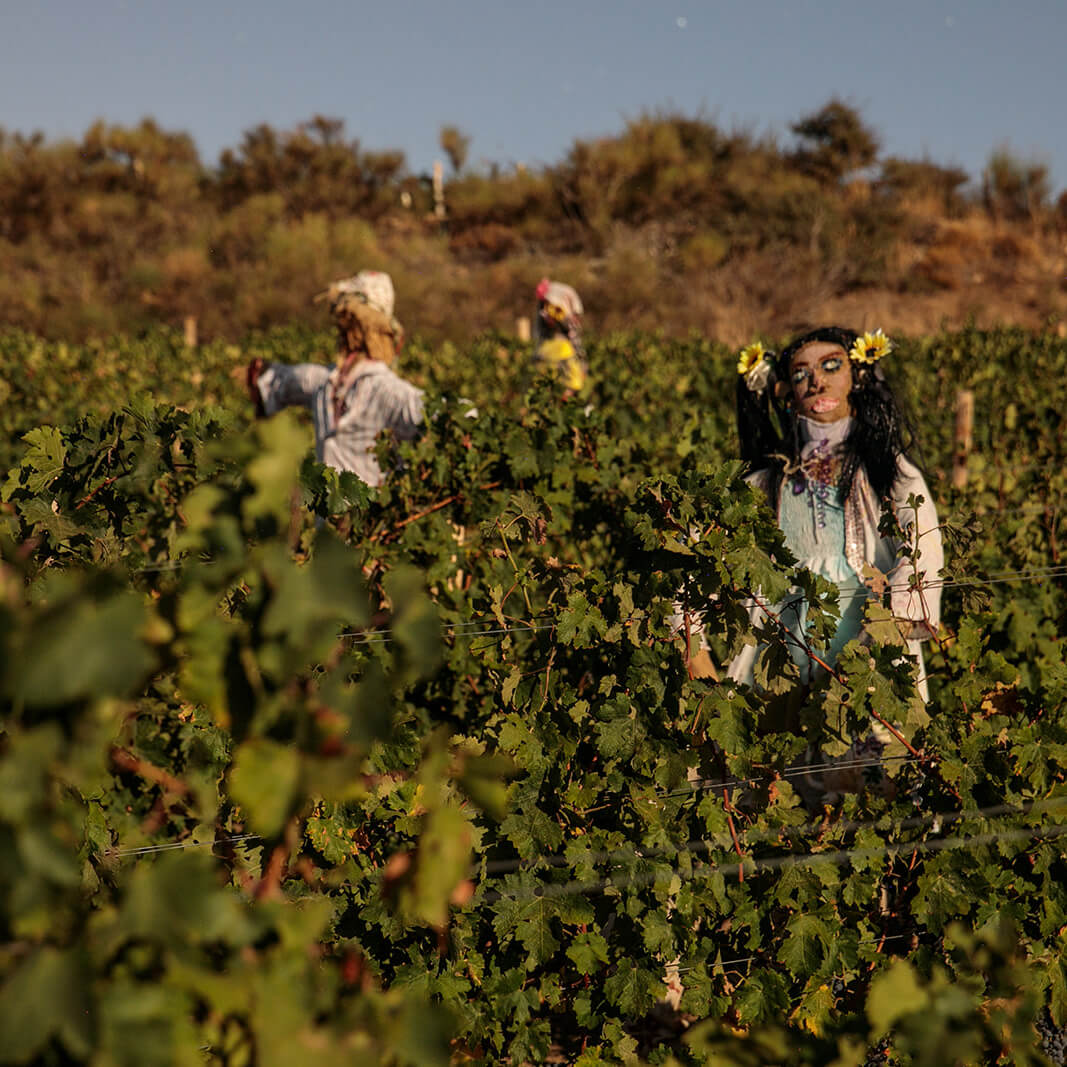
The cultivation is entirely organic and follows the principles of circular economy, utilizing all the by-products of the vineyard and winery as organic fertilizers.
Additionally, the avoidance of chemical fertilizers and the absence of irrigation ensure the sustainable management of natural resources and biodiversity, minimizing carbon and water footprint.

The dominant variety is the iconic Assyrtiko, which in the environment of Naxos expresses a more “earthy” character of its unique aromatic profile, in a special blend with the white Aidani and the Monemvasia, two of the finest white varieties of the Cycladic vineyard.
The red varieties are shared between the Fokiano, a variety with a particularly strong presence throughout the island, complemented ideally by the abundant Mavrotragano and the more “rebellious” Mandilaria.
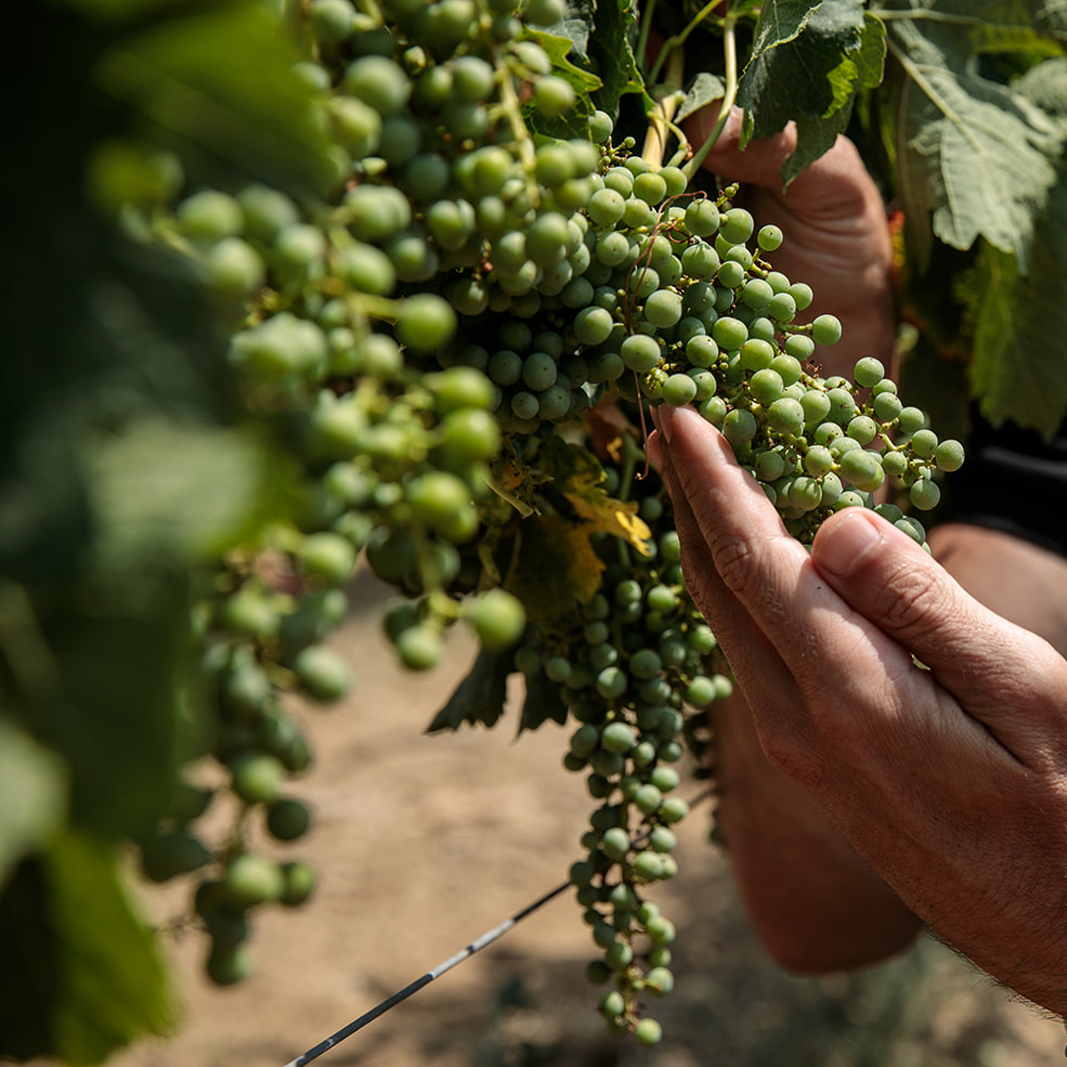
At the same time, great effort is made for the rescue, propagation, planting, study and promotion of local grape varieties in collaboration with the Department of Agriculture of the Aristotle University of Thessaloniki, with the aim of gradually incorporating them into the winery’s product range.
